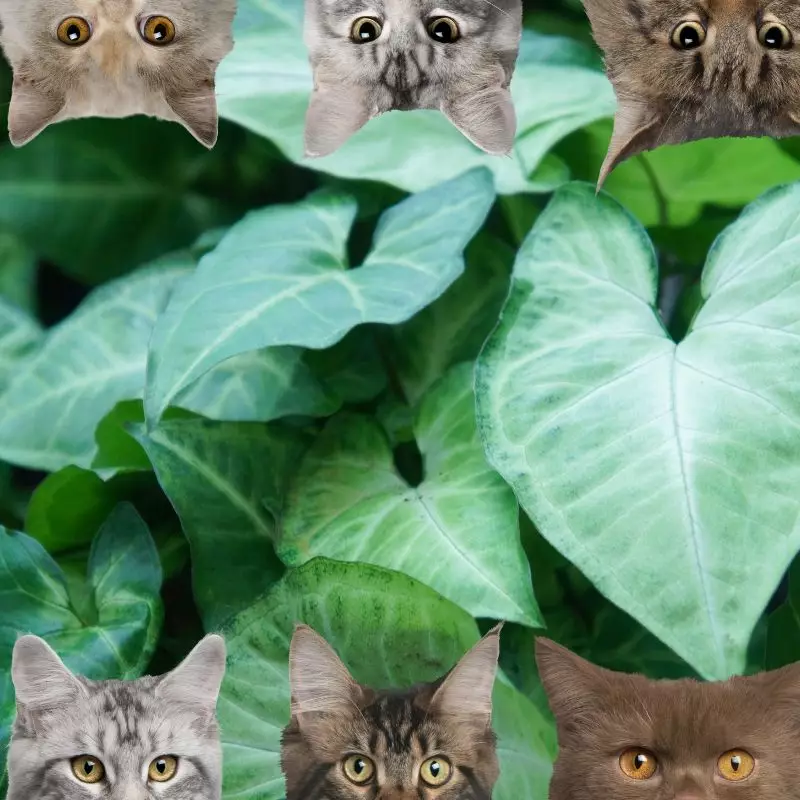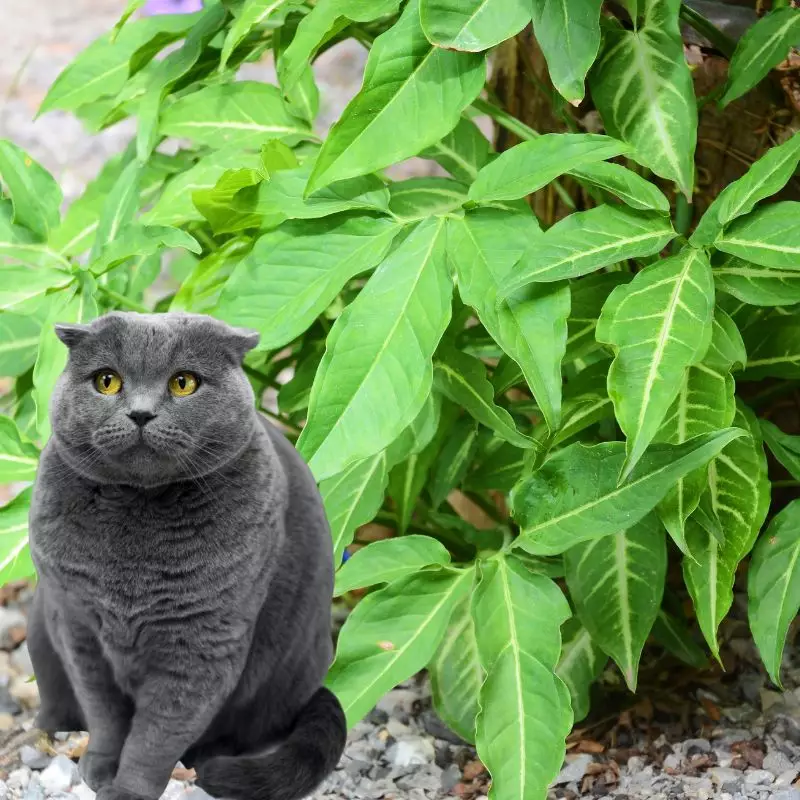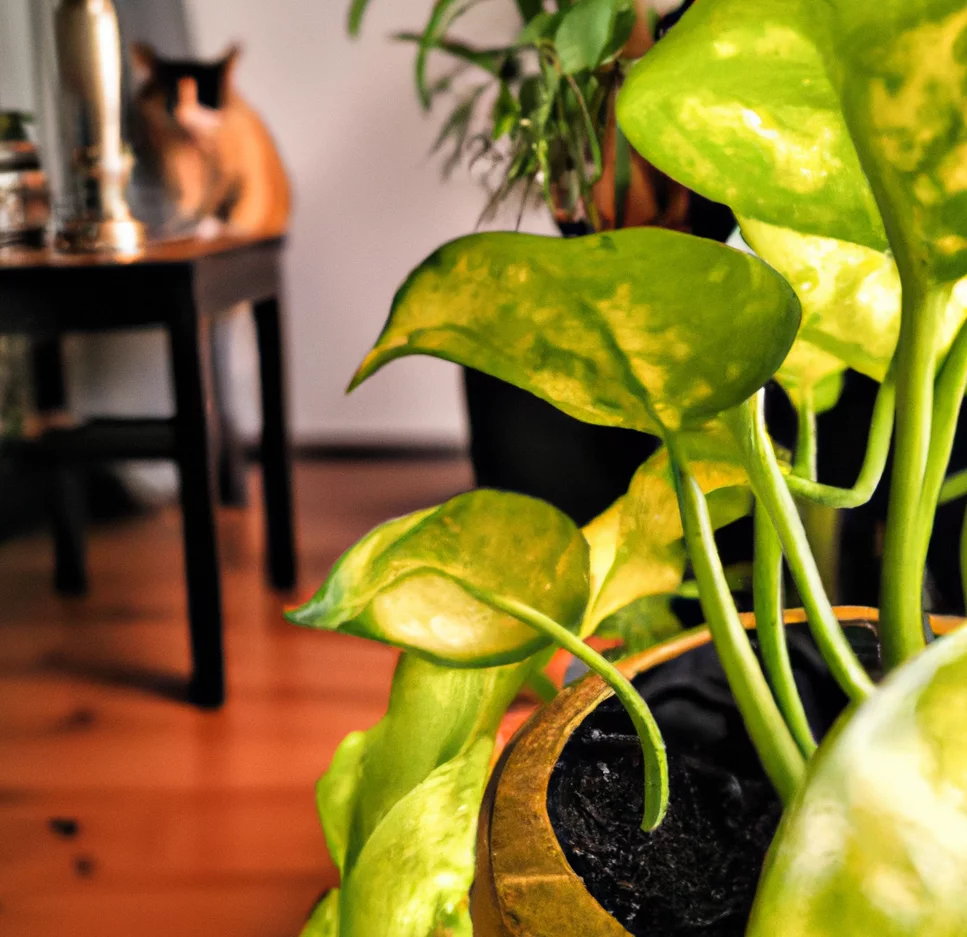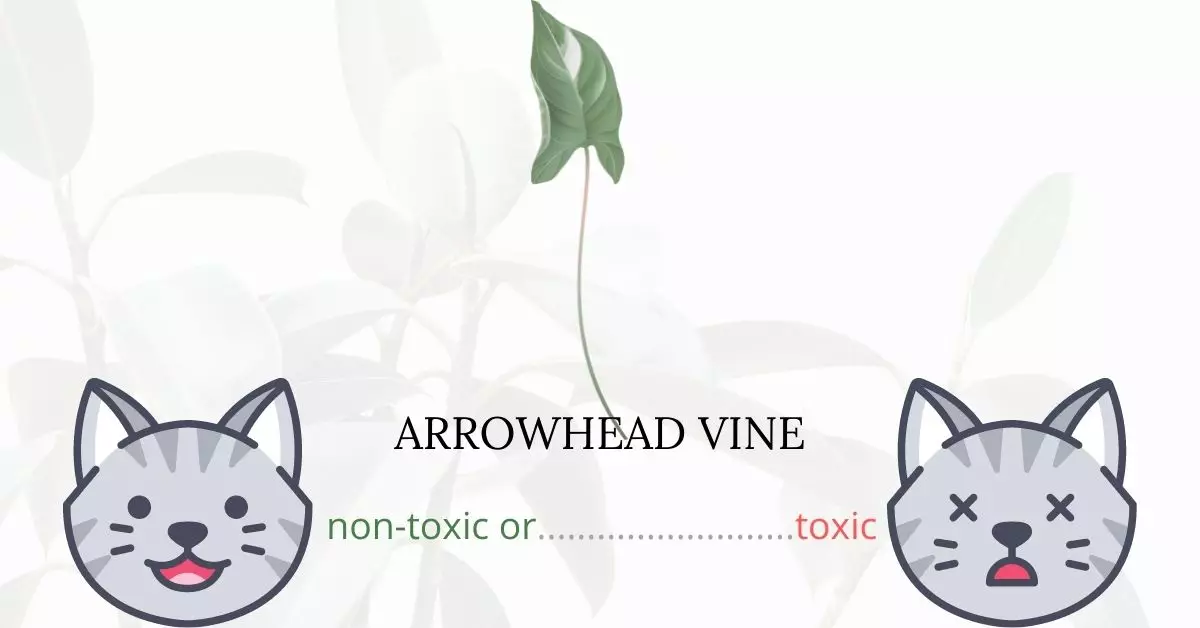Yes, Arrowhead Vine is toxic to cats. Arrowhead vines, also commonly known as Nephthytis, Green Gold Naphthysis, African Evergreen, and Trileaf Wonder, contain insoluble oxalate crystals. When a cat chews on this plant, these oxalate crystals are released, causing tissue penetration and discomfort in the mouth and oral cavity. In rare instances, arrowhead intoxication can result in blocked airways due to swelling.
This article is written in collaboration with a team of experienced DVMs (doctors of veterinary medicine). Their invaluable expertise ensures that we provide accurate and up-to-date information about the potential risks associated with Arrowhead Vines and their effects on cats. Additionally, our information is reinforced by extensive research from high-authority websites such as ASPCA and PetMD.
Clinical Signs of Arrowhead Vine Poisoning in Cats

If a cat has come into contact with, ingested, or even just smelled an Arrowhead Vine, certain clinical signs may manifest due to the plant’s toxicity. The arrowhead vine contains insoluble oxalate crystals, which, when ingested or chewed on, release into the mouth, causing a range of symptoms. The appearance and severity of these symptoms depend on the amount of plant ingested and the duration since ingestion. Here’s a breakdown of each symptom and the underlying cause:
- Vomiting: Ingesting the plant can irritate the stomach lining due to the oxalate crystals, leading to vomiting as the body tries to expel the irritant.
- Inflammation of the mouth: The oxalate crystals can cause immediate tissue penetration upon contact. This penetration results in pain, inflammation, and redness in the mouth.
- Increased rate of respiration: If ingested, the plant’s toxins can cause systemic effects that might lead to elevated respiratory rates as the body attempts to counteract and deal with the toxicity.
- Drooling excessively: The irritation and discomfort caused by the oxalate crystals in the mouth can lead to increased salivation, resulting in excessive drooling.
- Gnawing at the gums: The pain and irritation from the crystals can cause the cat to try and alleviate the discomfort by gnawing at its gums or other parts of its mouth.
- Difficulty in breathing: In rare instances, inflammation and swelling may occur in the throat due to the plant’s toxins. This can obstruct the airways, making it challenging for the cat to breathe.
Should you observe any of these symptoms in your cat after potential exposure to Arrowhead Vine, it is imperative to seek veterinary care immediately.
First Aid and Treatment of Arrowhead Vine Poisoning in Cats

Getting rid of toxins is the primary goal in treating arrowhead vine poisoning in cats. The irritation caused by the production of oxalate crystals can be relieved by rinsing your cat’s mouth and oral cavity with cool water. The veterinarian may administer antihistamine to minimize oral swelling that causes difficulty in breathing.
If your cat has been vomiting, the doctor will monitor him closely to ensure that his electrolyte levels are balanced and that his vital signs are stable. Anti-vomiting medication may also be prescribed by your cat’s veterinarian. Veterinarians commonly prescribe Sucralfate and Kapectolin to preserve your cat’s stomach lining and avoid vomiting.
Recovery from Arrowhead Vine Poisoning in Cats

After receiving proper veterinary care, cats poisoned by arrowhead vines recover completely. Depending on the severity of condition, the vet may ask you to leave your cat in his care so that he may monitor his vitals and ensure that he is in stable condition before allowing him to return home.
Prevention of Arrowhead Vine in Cats
It is advisable to remove arrowhead vines in your backyard if you have it but since they are common it is possible that your cat will be exposed again to it as long as he or she wanders outside your home unsupervised. Thus, it is best to keep your cats indoors to reduce the risk of getting posioned by arrowhead vines or any other toxic plants. Additionally, you can make your home cat-friendly by growing these non-toxic plants for your cats.
If you love plants but have cats at home, check out these lists:





